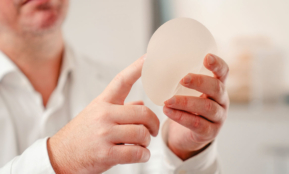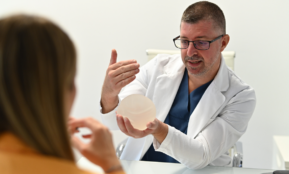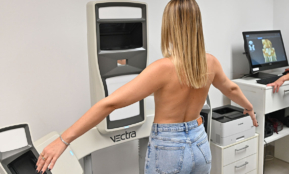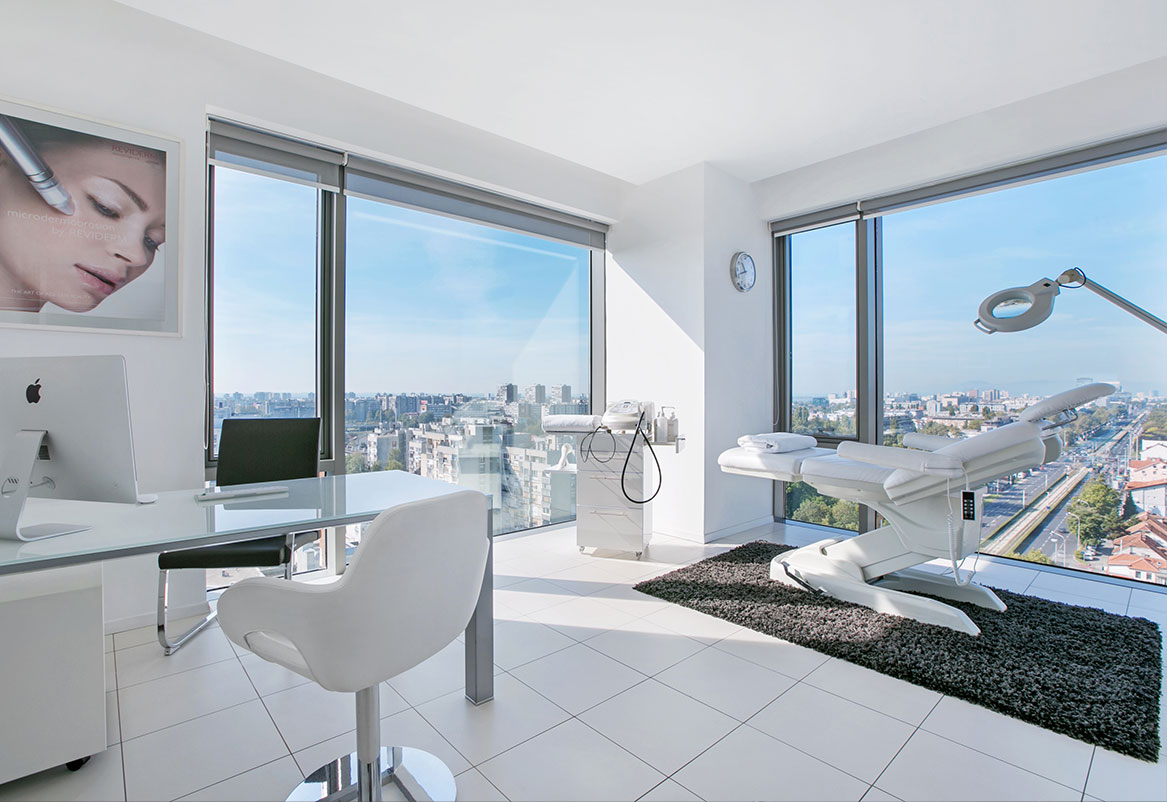Aesthetics
Face
The most modern facial treatments help you look younger, more elegant and happier.
Body
Feel comfortable in your body and correct sources of discomfort.
Chest
Make your wish for a better appearance come true and restore your self-confidence with aesthetic correction.
Hair and scalp
Minimally invasive solutions for hair loss and a natural look.
Issues
Find solutions to some of the most common aesthetic problems.
Treatments
Surgery
Treatments

Hair and scalp mesotherapy
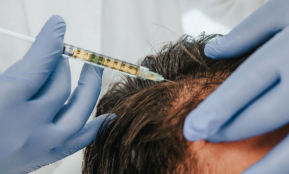
Thinning hair therapy with your own blood

Trichotest – DNA analysis of hair loss and baldness
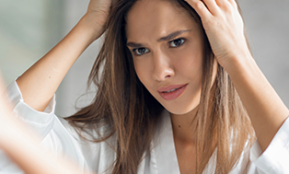
Hair loss in women – causes and how to prevent it
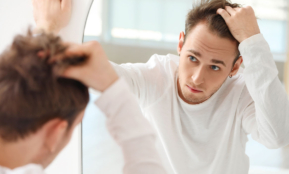
Hair loss in men – causes and how to prevent it
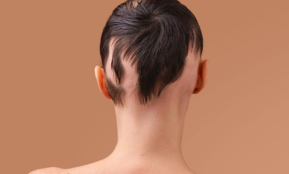
Alopecia – hair loss
FACE
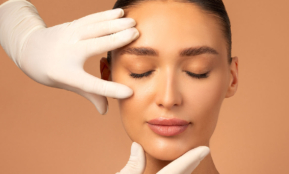
BODY
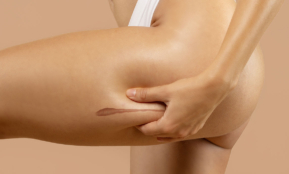
Implantology Center
Different methods of solving the problem of missing one or more teeth.
Prosthetics
The most common solution in cases of functional or aesthetic tooth damage.
Aesthetic Dentistry
Harmonious tooth shaping and tooth color correction according to your wishes.
General Dentistry
Modern and timely diagnostics, treatment and dental hygiene are the key to the health of your teeth.
Issues
Find solutions to some of the most common aesthetic problems.
About us
Locations
Causes of dark circles
-
Genetics
Dark circles can be hereditary, meaning that if your parents had dark circles under their eyes, you are likely to have them too.
-
Aging
With age, the skin under the eyes becomes thinner and less elastic, which can cause more visible blood vessels and dark spots.
Aging can cause the fatty layer under the eyes to decrease, making dark circles more noticeable. -
Exposure to sunlight
Prolonged sun exposure can increase melanin production in the skin under the eyes, which can cause dark circles.
-
Fatigue and lack of sleep
Lack of sleep can cause fluid retention and dilation of blood vessels under the eyes, leading to a darker appearance.
-
Dehydration
Lack of hydration can cause dryness and thickening of the skin under the eyes, which can intensify the appearance of dark circles.
The influence of lifestyle on dark circles
-
Sleep and rest
Chronic sleep deprivation can cause fluid retention and dilation of blood vessels under the eyes, leading to more visible dark circles. People who don't get enough sleep often have tired and pale skin, which can accentuate dark circles.
-
Hydration
Lack of fluids can cause dryness and thickening of the skin, which can increase the appearance of dark circles and puffiness. It can also lead to general fatigue, which can worsen dark circles.
Drink enough water every day (about 8 glasses a day) and increase your fluid intake if you are physically active or exposed to hot conditions. -
Nutrition
Vitamins like vitamin K, C, and B12 play a key role in skin health and can affect the appearance of dark circles. A deficiency in these vitamins can worsen dark circles.
Excessive salt intake can cause fluid retention and swelling around the eyes, which can worsen the appearance of dark circles. -
Stress and mental health
High levels of stress can cause poor sleep quality, fatigue and decreased circulation, which can worsen the appearance of dark circles.
Incorporate relaxation techniques like yoga, meditation, or deep breathing into your routine to reduce stress. -
Smoking and alcohol
Smoking can reduce blood flow to the skin, cause skin thinning and accelerate aging, which can worsen the appearance of dark circles.
Alcohol can dehydrate the body and skin, which can increase dark circles and puffiness around the eyes. -
Sun exposure
Long-term exposure to UV rays can cause skin damage and increase pigmentation in the area around the eyes.
-
Genetics
If your parents had dark circles under their eyes, you are more likely to have them too. Hereditary factors can affect skin texture, the amount of fat under the eyes, and the tendency for hyperpigmentation.
The skin under the eyes is naturally thinner and more sensitive, which can be hereditary. Thinner skin can show more blood vessels and pigmentation, making dark circles more visible.
Some people are genetically predisposed to increased melanin production in the skin under their eyes. This can cause dark spots or hyperpigmentation that can look like dark circles.
How to reduce the appearance of dark circles?
-
Creams and serums
Creams containing vitamin C can lighten the skin and reduce hyperpigmentation.
Retinoid creams can improve skin texture and reduce dark circles, but they should be used with caution due to the sensitivity of the skin around the eyes.
Hyaluronic acid can hydrate the skin and reduce the appearance of fine lines and wrinkles.
-
Cold compresses
Applying cold compresses or spoons to your eyes can reduce swelling and dilated blood vessels. Keep the compress on for 10-15 minutes.
-
Professional treatments
Chemical peels can help remove the top layers of skin and lighten dark circles.
Laser therapy can target pigmentation and improve the appearance of the skin under the eyes.
Dermal fillers can add volume under the eyes and reduce the appearance of dark circles caused by fat loss.
Myths and truths about dark circles
-
Dark circles are always a sign of fatigue.
While lack of sleep and fatigue can worsen the appearance of dark circles, they are not the only cause. Dark circles can be caused by genetics, aging, dehydration, allergies, hormonal changes, and sun exposure.
-
Only young people don't have dark circles under their eyes.
Dark circles can affect people of all ages. Although younger people are less prone to severe dark circles, as we age, the skin under the eyes becomes thinner and less elastic, which can intensify the appearance of dark circles.
-
Eye creams can completely eliminate dark circles
Eye creams can help reduce the appearance of dark circles, especially if they contain ingredients like vitamin C, caffeine, and hyaluronic acid. However, they will rarely completely eliminate dark circles, especially if they are caused by genetics or aging. They are most useful for relieving symptoms, not completely solving the problem.
-
Smoking does not affect dark circles
Smoking can worsen the appearance of dark circles. Smoking reduces blood flow to the skin and can cause the skin to thin, which can make dark circles more visible. It can also accelerate skin aging and worsen the overall condition of the skin.
BLOG SUGGESTION


